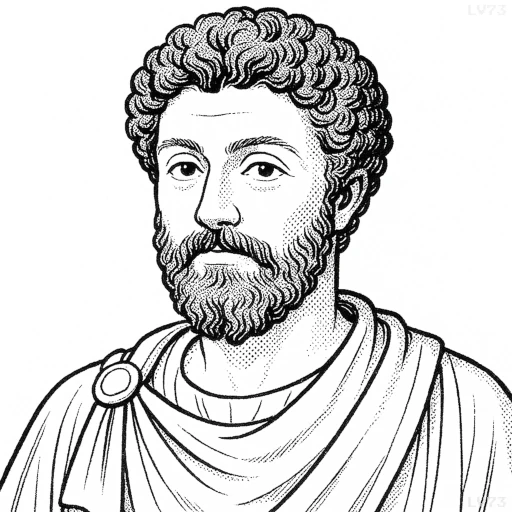“Anything in any way beautiful derives its beauty from itself and asks nothing beyond itself. Praise is no part of it, for nothing is made worse or better by praise.”

- April 26, 121 – March 17, 180
- Roman Empire
- Roman Emperor
table of contents
Quote
“Anything in any way beautiful derives its beauty from itself and asks nothing beyond itself. Praise is no part of it, for nothing is made worse or better by praise.”
Explanation
In this quote, Marcus Aurelius emphasizes the idea that beauty is intrinsic—true beauty does not depend on external validation, such as praise or admiration, but is inherent in the thing itself. Whether it is a piece of art, a person’s character, or the natural world, its beauty is complete in its own right and does not need external acknowledgment to be valuable or perfect. Aurelius suggests that praise is irrelevant to the object of beauty, for external recognition neither enhances nor diminishes its true nature. This perspective encourages a focus on self-worth and internal beauty, rather than seeking validation from others.
Aurelius, a Stoic philosopher and ruler, believed that living virtuously and according to reason was inherently valuable, regardless of whether others acknowledged it. This idea is grounded in Stoicism, which teaches that we should not seek external praise or approval, but rather act in alignment with our own virtue and principles. The same idea is relevant today, where we often seek validation through social media, achievements, or public recognition. Aurelius’ wisdom calls for us to find beauty in things for their own sake, not because of how they are perceived by others.
In practical terms, this quote encourages us to focus on internal fulfillment and self-acceptance, rather than relying on praise from others to define our worth. For instance, if we perform a task well or live according to our values, we should take pride in the act itself, rather than waiting for external recognition. By embracing the idea that beauty and value are inherent, we can cultivate a greater sense of self-worth and peace, unaffected by the opinions or praise of others. This approach promotes a life of integrity, where our actions are guided by internal standards of excellence, rather than external rewards or recognition.
Would you like to share your impressions or related stories about this quote in the comments section?


